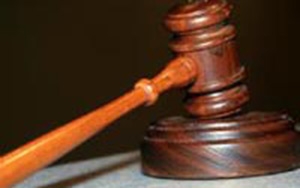LinkedIn Users Press Judge To Approve $13 Million Email Privacy Settlement
- by Wendy Davis @wendyndavis, January 18, 2016
 More
than half a million LinkedIn members will receive $16 each as part of the company's settlement of a lawsuit alleging it misappropriated users' names by sending email invitations to their friends.
More
than half a million LinkedIn members will receive $16 each as part of the company's settlement of a lawsuit alleging it misappropriated users' names by sending email invitations to their friends.
Those figures were revealed in new court papers asking U.S. District Court Judge Lucy Koh in the Northern District of California to grant final approval to the $13 million settlement. The deal calls for LinkedIn to distribute at least $9 million of the fund to members who claim their identities were wrongly used by LinkedIn.
Class counsel says in a motion filed on Thursday that the settlement is "fair, reasonable and adequate."
They add that the settlement's monetary terms are "particularly impressive in light of other recent class action settlements in the area of digital privacy."
In the last several years, Web companies including Google and Facebook have settled other privacy cases by agreeing to create a fund that makes payments to nonprofits, but not to individual users who were affected by the alleged lapses.
The papers filed last week state that around 550,000 users have submitted claims to the company. Assuming they're valid, LinkedIn will end up paying around $16 to each claimant. The lawyers who brought the case could receive more than $3 million in attorneys' fees.
If accepted by U.S. District Court Judge Lucy Koh in the Northern District of California, the deal will resolve a battle dating to September of 2013, when a group of LinkedIn users accused the company of violating the federal wiretap law by “hacking” into their email accounts, in order to harvest their friends' addresses.
The users -- including a former manager of international advertising sales for The New York Times -- also alleged that LinkedIn misappropriated their names and identities by sending a series of three email invitations to their friends. While the users acknowledged that the company asked them for permission to grow their networks, they argued that the service made only “cryptic disclosures” before harvesting email addresses and sending invitations.
Koh narrowed the case in 2014, when she rejected the hacking claim on the grounds that the users agreed to transmit an initial email invitation to their friends. But she allowed the consumers to proceed with claims regarding the two follow-up emails.
LinkedIn subsequently argued that it had a free-speech right to send those follow-up emails, on the theory that the service helps people to communicate with each other. In November of 2014 Koh rejected that argument; soon after that decision, LinkedIn and the consumers agreed to resolve the case out of court.
The settlement also requires LinkedIn to revise some of its prior practices. Among others, LinkedIn will change the disclosures it makes when asking people to grow their networks via the automated “Add Connections” feature. Now, the company will explicitly state that its “Add Connections” tool imports people's address books. LinkedIn also will let people who use Add Connections wield more control over which contacts receive the automated invitations and follow-up emails.
Class counsel wrote that those new obligations "are designed to address, remedy, and prospectively prevent the fundamental harms that gave rise to this litigation."


